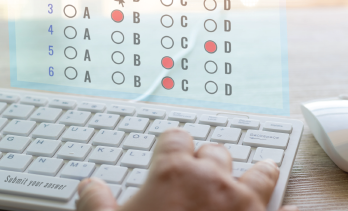
NuPenDekDee / shutterstock.com
Preparing for the American Board of Internal Medicine (ABIM) Rheumatology Certification Exam can easily be one of the most anxiety-inducing times for young trainees (and even seasoned rheumatologists). Once again, you are asked to demonstrate mastery of your knowledge in a medical field, and this time it is for the field of rheumatology—a discipline with one of the widest ranging, complex and varied array of diseases, pathophysiology and treatment quandaries seen in medicine. In this article, I hope to quay some fears and lay down a framework you can use when preparing for the boards.
One of the first things you should keep in mind about the Rheumatology Certification Exam is that the vast majority of people pass it. Over the past five years, the first-time pass rate has averaged about 93%.1 The ABIM is not in the business of failing physicians, especially in light of the forecasted workforce shortage in this country.2 With that piece of knowledge:
Tip 1: Don’t Panic!
You are all smart. That’s how you got where you are today. Although such a consequential exam can be stressful even to think about, over 90% of you get through this on the first try, and nearly everyone else gets through it eventually.1 The small percentage of doctors who don’t pass the boards are usually the ones who just didn’t study. When asked, “What happened?” the most common response is, “I didn’t prepare—at all.” Hard to believe, I know, but it’s true. Whether or not they had legitimate reasons for not preparing adequately—there are a few—or, more commonly, for relying only on what they assume they knew (i.e., being overly confident), there are always a few who fail this test.
Tip 2: Take the Boards Seriously
No one is immune to the need to study for this exam. At the same time, you don’t need to go crazy, putting in 60-plus hours a week and hitting the books for months on end. The general consensus is that you need at least three months to adequately prepare. That’s a couple of hours here and there—maybe five to seven extra hours a week—to get ready for the exam. Some people need more, some need less, but don’t wait until the week before to prepare. Have you taken a moment to think about the breadth of our specialty? You cannot cram for an entire field of medicine like rheumatology.
In the next section, I’m going to outline what I find to be an effective strategy for studying for the exam. That said, everyone is different, and not every suggestion will work for you. By this time in your career, you’ve passed a couple of these big exams before, and you know what works (or doesn’t) for you.
